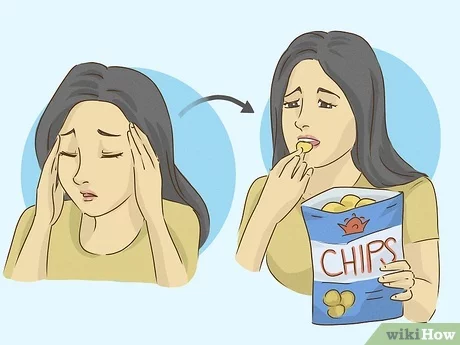
Expert Fat Loss Guide: Effective Strategies to Achieve Your Weight Loss Goals

Are you tired of trying different diets and workout plans without seeing significant results in your fat loss journey? Don’t worry; you’re not alone. Losing fat can be a challenging and frustrating process, but with the right strategies and expert guidance, you can achieve your weight loss goals successfully. In this comprehensive fat loss guide, we will explore effective techniques that will help you shed unwanted fat and improve your overall health. Let’s dive in!
Understanding the Science of Fat Loss
Before diving into specific strategies, it’s essential to understand the science behind fat loss. The human body stores excess calories in the form of fat for energy reserves. To lose fat, you need to create a calorie deficit by consuming fewer calories than you burn. This deficit forces the body to tap into its fat stores for energy, resulting in weight loss.
Setting Realistic Weight Loss Goals
To embark on a successful fat loss journey, it’s crucial to set realistic and achievable goals. Aiming for sustainable weight loss of 1-2 pounds per week is generally considered healthy and attainable. Remember, slow and steady progress is more sustainable in the long run. Expert Fat Loss Guide
Creating a Calorie Deficit: The Foundation of Fat Loss
Creating a calorie deficit is the foundation of fat loss. To achieve this, you can either reduce your calorie intake or increase your calorie expenditure through physical activity. A combination of both approaches yields the best results. Tracking your calorie intake and expenditure using apps or journals can be helpful in maintaining a calorie deficit.
Structuring Your Diet for Fat Loss
When it comes to fat loss, a well-structured diet plays a crucial role. Focus on consuming nutrient-dense foods while controlling portion sizes. Incorporate lean proteins, fruits, vegetables, whole grains, and healthy fats into your meals. Minimize processed foods, sugary drinks, and excessive snacking.
The Role of Exercise in Fat Loss
While diet is paramount for fat loss, exercise is equally important. It helps increase calorie expenditure, builds lean muscle mass, and improves overall health. A combination of strength training and cardiovascular exercise yields the best fat loss results. Expert Fat Loss Guide
Strength Training for Fat Loss
Engaging in regular strength training workouts is essential for fat loss. Strength training builds muscle, which increases your metabolic rate and helps burn more calories throughout the day. Focus on compound exercises that target multiple muscle groups and incorporate both free weights and resistance machines.
Incorporating Cardiovascular Exercise
Cardiovascular exercise is effective in burning calories and promoting fat loss. Find activities you enjoy, such as running, cycling, swimming, or dancing, and aim for at least 150 minutes of moderate-intensity cardio per week. Gradually increase the duration and intensity of your cardio workouts for continued progress.
Maximizing Fat Loss with High-Intensity Interval Training (HIIT)
High-Intensity Interval Training (HIIT) is a powerful tool for fat loss. It involves short bursts of intense exercise followed by active recovery periods. HIIT workouts not only burn calories during the session but also increase your metabolic rate for hours afterward, resulting in accelerated fat loss. Expert Fat Loss Guide
Prioritizing Sleep and Stress Management
Adequate sleep and stress management are often overlooked but critical factors in fat loss. Lack of sleep disrupts hormone balance, increases cravings, and impairs recovery. Practice good sleep hygiene and implement stress-reducing techniques such as meditation, deep breathing exercises, or engaging in hobbies you enjoy.
The Importance of Hydration
Staying hydrated is essential for overall health and supports fat loss efforts. Drinking an adequate amount of water helps optimize metabolism, aids digestion, and promotes satiety. Aim to drink at least 8 cups (64 ounces) of water per day, or more if you are physically active.
Tracking Progress and Adjusting Your Approach
Monitoring your progress is crucial for staying on track and making necessary adjustments. Keep a journal of your workouts, measurements, and how you feel both physically and mentally. Take progress photos and periodically reassess your calorie intake and exercise routine to ensure continued progress. Expert Fat Loss Guide
Seeking Professional Guidance and Support
If you feel overwhelmed or unsure about your fat loss journey, consider seeking guidance from a registered dietitian, certified personal trainer, or healthcare professional specializing in weight management. Their expertise and support can provide valuable insights and help you navigate any challenges along the way.Expert Fat Loss Guide
Common Fat Loss Mistakes to Avoid
Avoiding common fat loss mistakes can save you time and frustration. Some common pitfalls include excessive restriction, relying on fad diets, neglecting strength training, and expecting overnight results. Remember, sustainable fat loss requires patience, consistency, and a holistic approach. Expert Fat Loss Guide

Frequently Asked Questions (FAQs)
Is spot reduction possible?
Spot reduction, the idea of losing fat from specific areas of the body, is a myth. Fat loss occurs uniformly throughout the body as a result of overall calorie deficit and increased physical activity. Expert Fat Loss Guide
Can I still enjoy my favorite foods while losing fat?
Yes, you can enjoy your favorite foods in moderation while losing fat. Incorporate them into your diet strategically, practice portion control, and prioritize nutrient-dense foods for overall balance.
Do supplements help with fat loss?
While some supplements may aid in fat loss, they are not a magic solution. Focus on creating a healthy diet and exercise routine before considering supplements, and consult with a healthcare professional for personalized advice.
How long will it take to see noticeable fat loss results?
The rate at which you notice fat loss results depends on various factors such as starting weight, body composition, genetics, and adherence to your plan. Remember, sustainable progress takes time, so be patient and consistent.
Can I lose fat without exercising?
While exercise is beneficial for overall health and fat loss, creating a calorie deficit through dietary changes alone can still lead to weight loss. However, exercise offers numerous additional health benefits and improves body composition.
Conclusion
Embarking on a fat loss journey requires commitment, patience, and a well-rounded approach. By understanding the science of fat loss, setting realistic goals, creating a calorie deficit, structuring your diet, incorporating exercise, prioritizing sleep and stress management, and seeking professional guidance when needed, you can achieve sustainable fat loss and improve your overall well-being. Expert Fat Loss Guide
Remember, every individual is unique, and what works for one person may not work for another. Listen to your body, make adjustments as necessary, and celebrate the small victories along the way. Stay consistent, stay motivated, and embrace the positive changes that come with your fat loss journey.





Carb Cycling: A Comprehensive Guide to Optimizing Your Nutrition and Fitness - FITNZOID
[…] carb cycling, its benefits, and how to implement it into your nutrition and fitness routine effectively. Whether you’re an athlete looking to improve performance or someone seeking to optimize […]